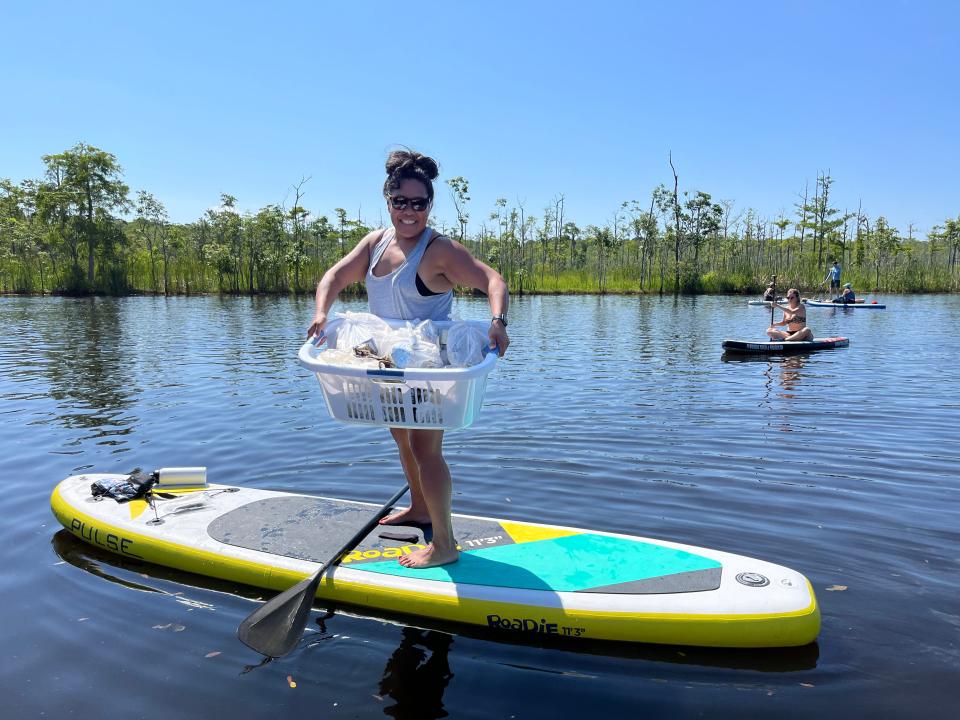29,336 pounds: How many tons of trash did volunteers pull from along St. Johns River?
A bevy of volunteers collected more than a dozen tons of litter, literally, from the St. Johns River watershed this spring.
The nonprofit St. Johns Riverkeeper teamed up with local governments, businesses and other nonprofit organizations for multiple cleanup events between March 18 and April 22, Earth Day.
Volunteers met up at sites across multiple counties in the watershed, which encompasses almost 9,000 square miles, including Volusia, St. Johns, Seminole, Putnam and Duval.

Here's how it went, according to the St. Johns Riverkeeper:
Tons of trash
Volunteers collected 29,336 pounds of garbage, which equals approximately 14.6 tons.
The 1,462 bags of refuse were filled with cigarette butts, plastic bottles, cans, styrofoam cups and more.
Here's how many pounds each county collected:
Duval - 14,660
Volusia - 9,060
Seminole - 2,540
Orange - 2,480
Putnam - 520
St. Johns - 60
Clay - 16
Worst types of litter: Find out if you're contributing to the top 5
Visible volunteers
More than 1,300 volunteers spent just over 2,900 hours cleaning up 76 different sites.
In addition to picking up trash along the riverbank, some volunteers took to the water, via boat or paddleboard, to pull garbage directly out of the river.
Riverkeeper reaction
How to help the St. Johns River
The St. Johns Riverkeeper is a nonprofit that works to protect the river and educate people about why the health of the river matters.
The organization on its website offers several tips on how to be "river friendly" and live in ways that don't contribute to harming the river and environment.
Some tips include:
Use non-toxic cleaning agents in and around the house, on vehicles and on boats
Use fertilizer sparingly and with caution; look for slow-release nitrogen fertilizer with little or no phosphorous that does not contain herbicides or pesticides
Set thermostat to 78 degrees or higher during the summer, 68 degrees or lower during the winter
Unplug appliances, chargers and other electronics when not in use
Use native plants in yards and avoid St. Augustine grass, which needs more water and maintenance
This article originally appeared on The Daytona Beach News-Journal: St. Johns River cleanup effort yields 29,336 pounds of garbage

